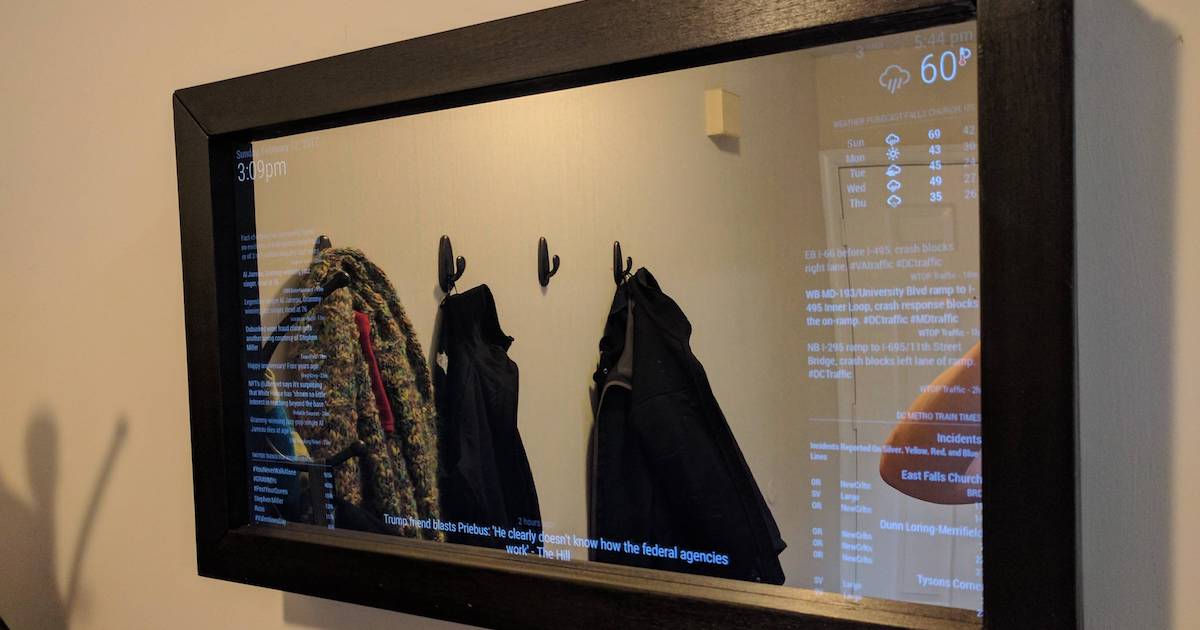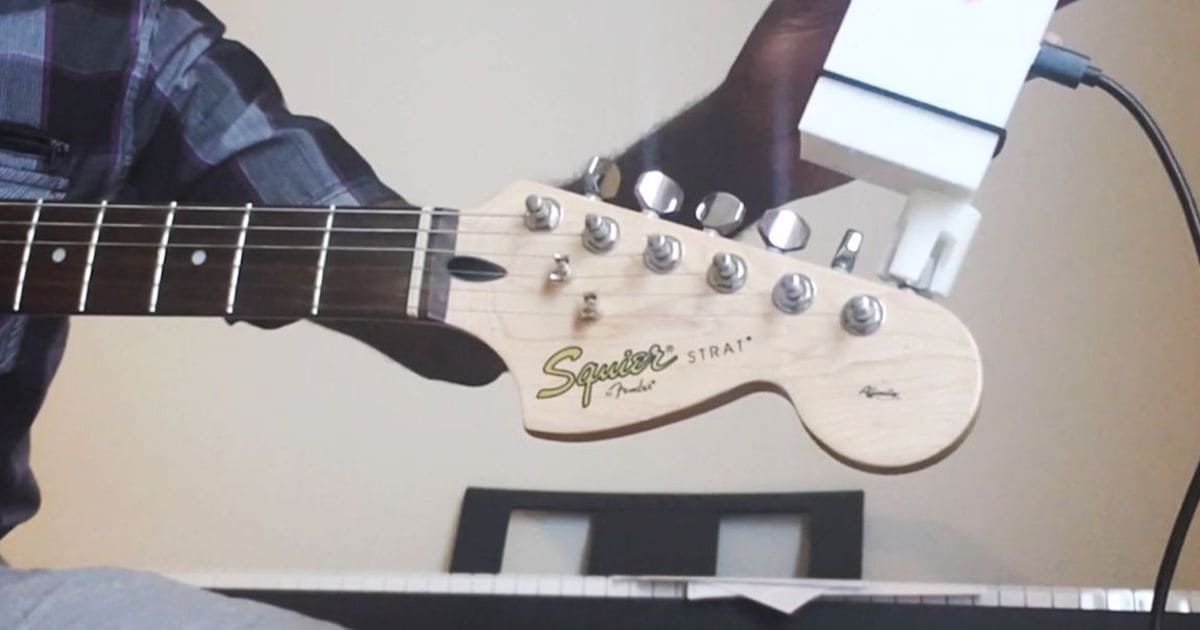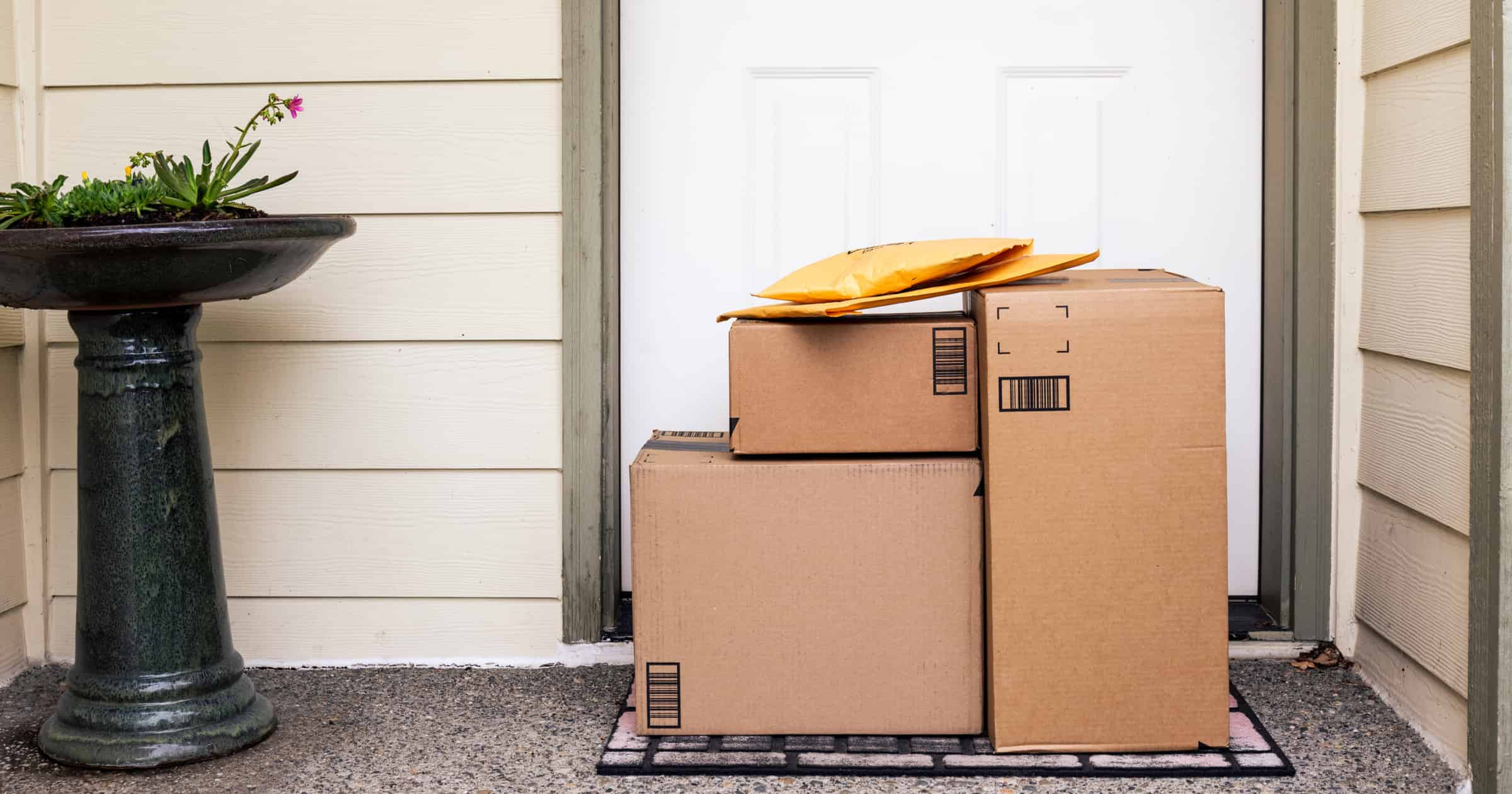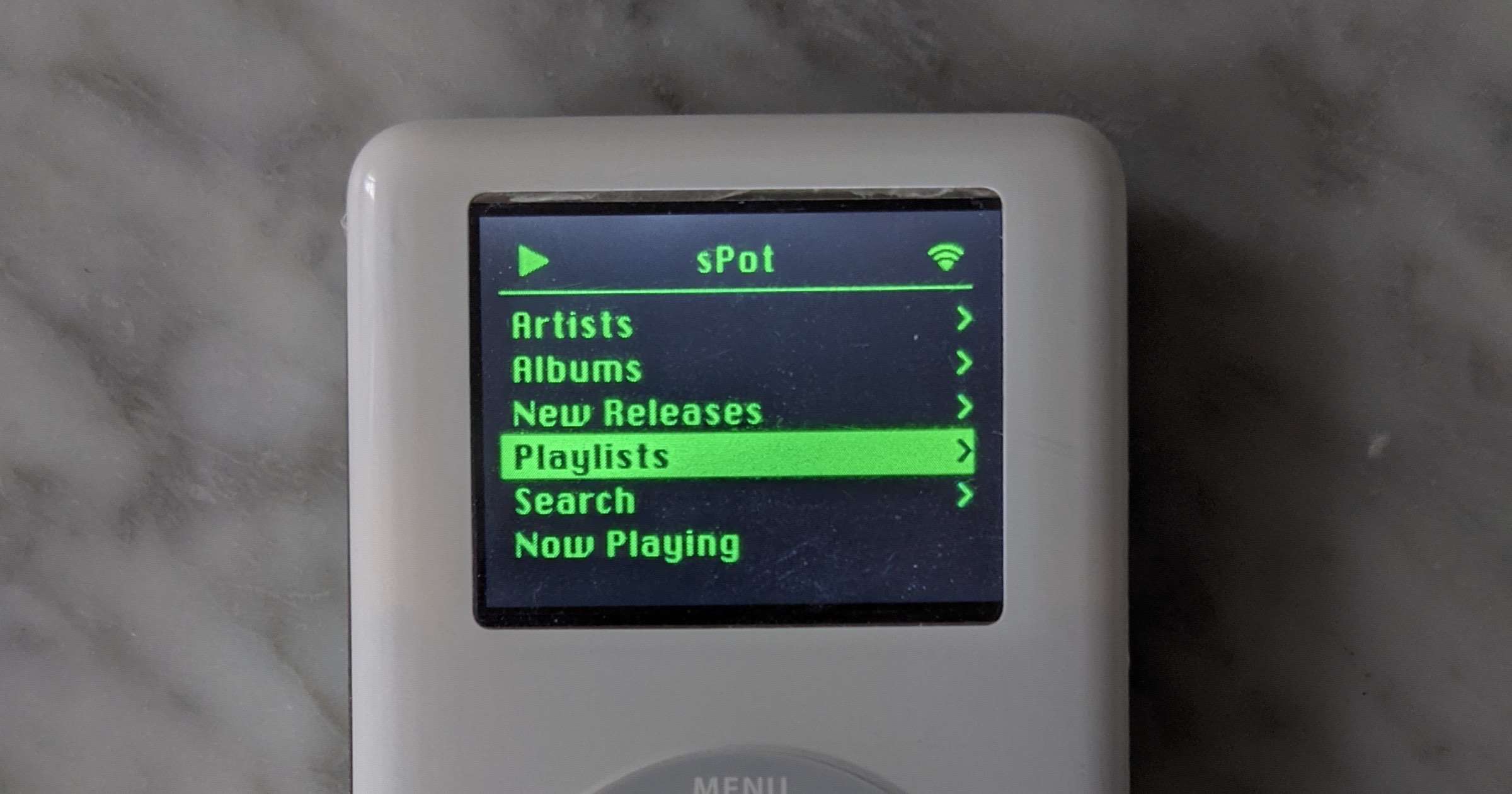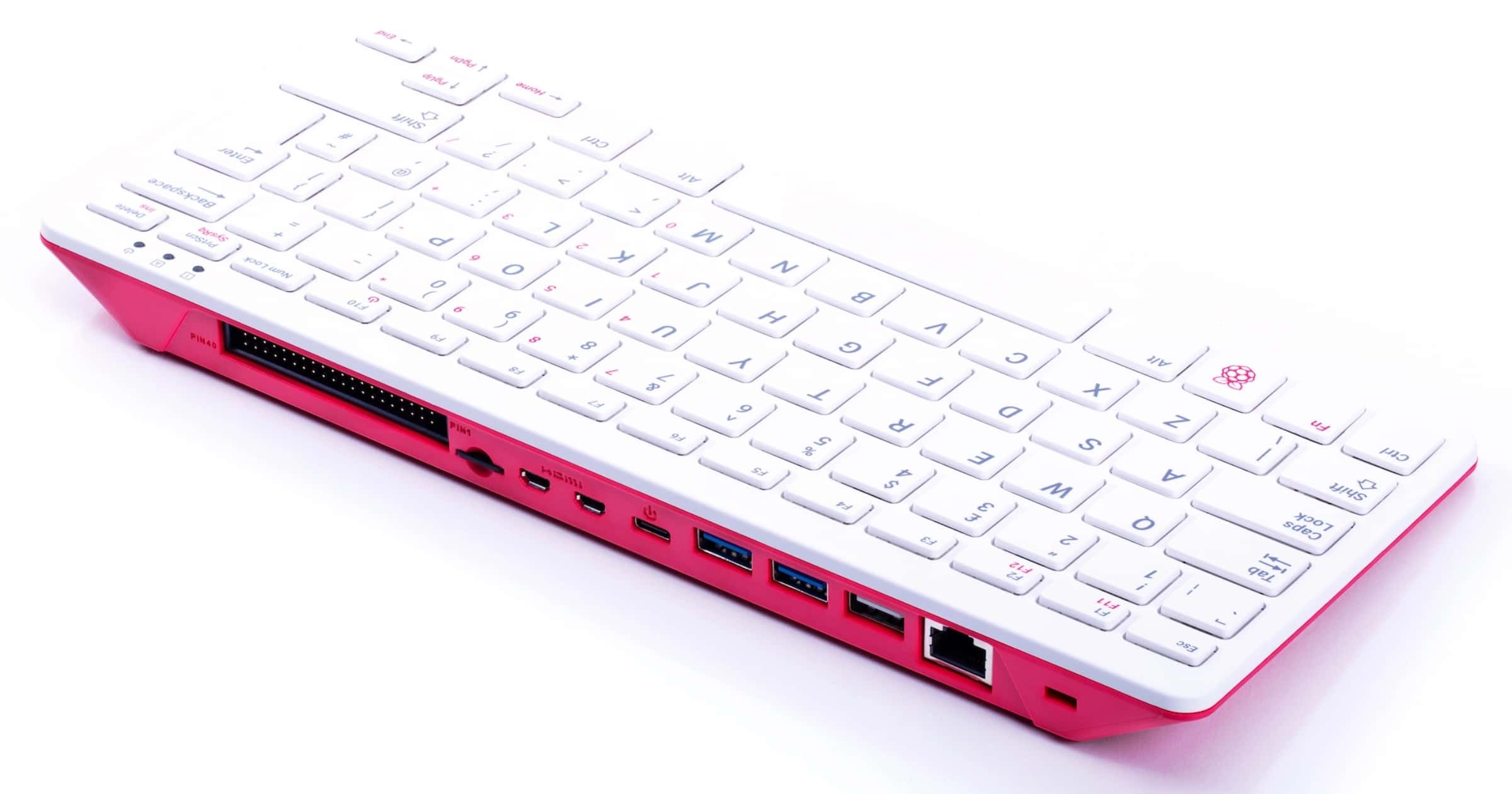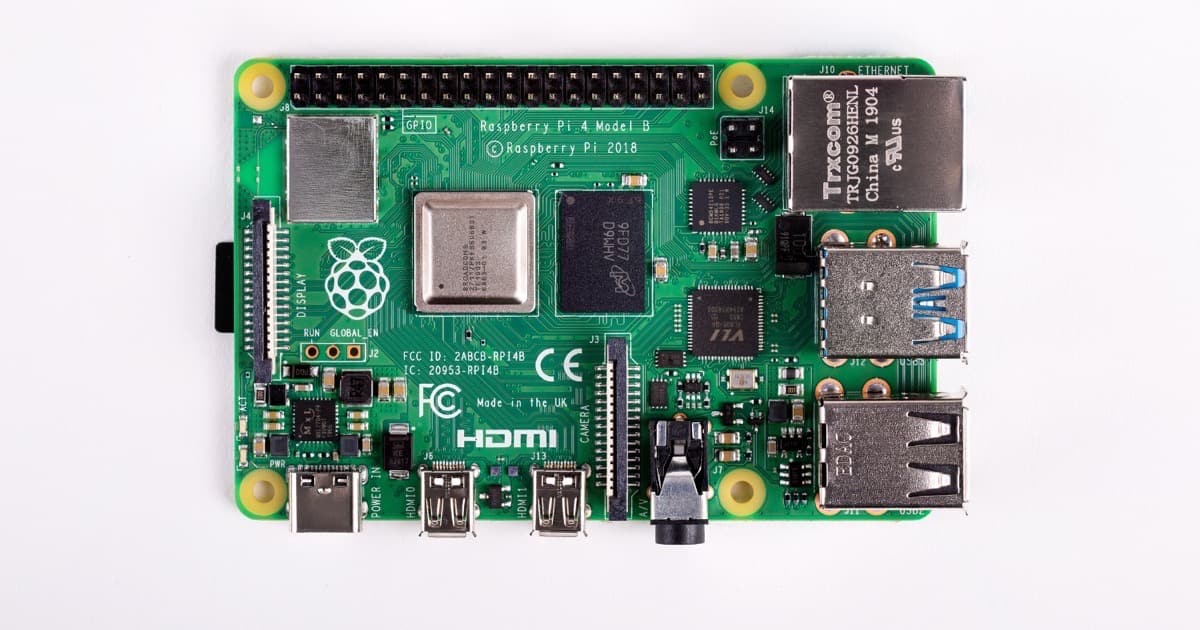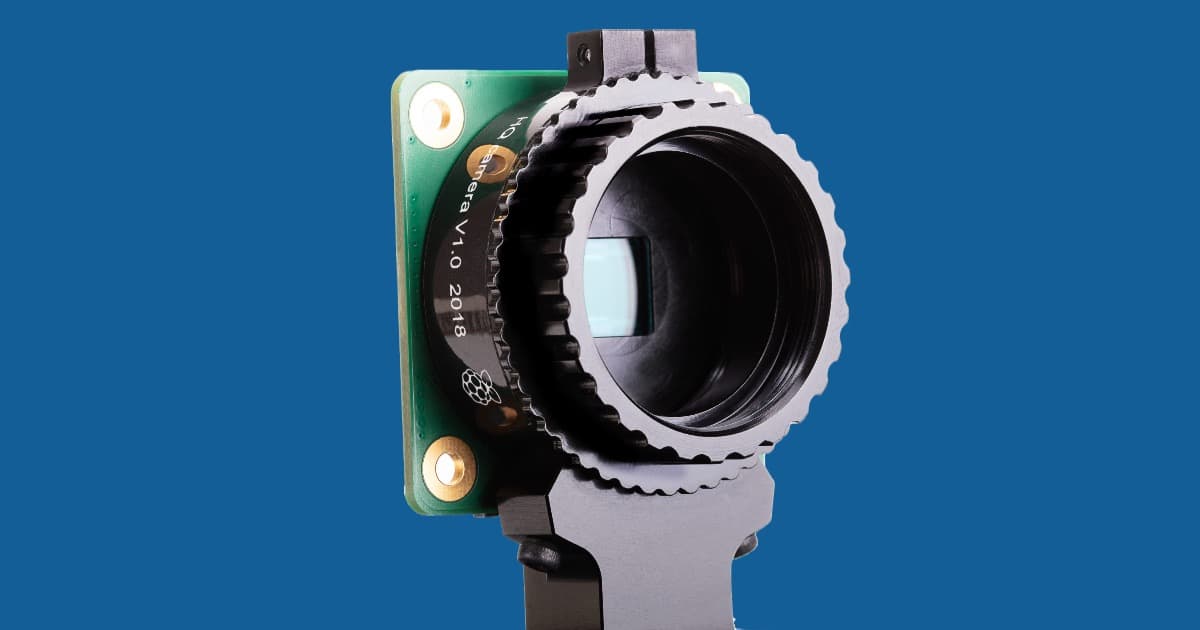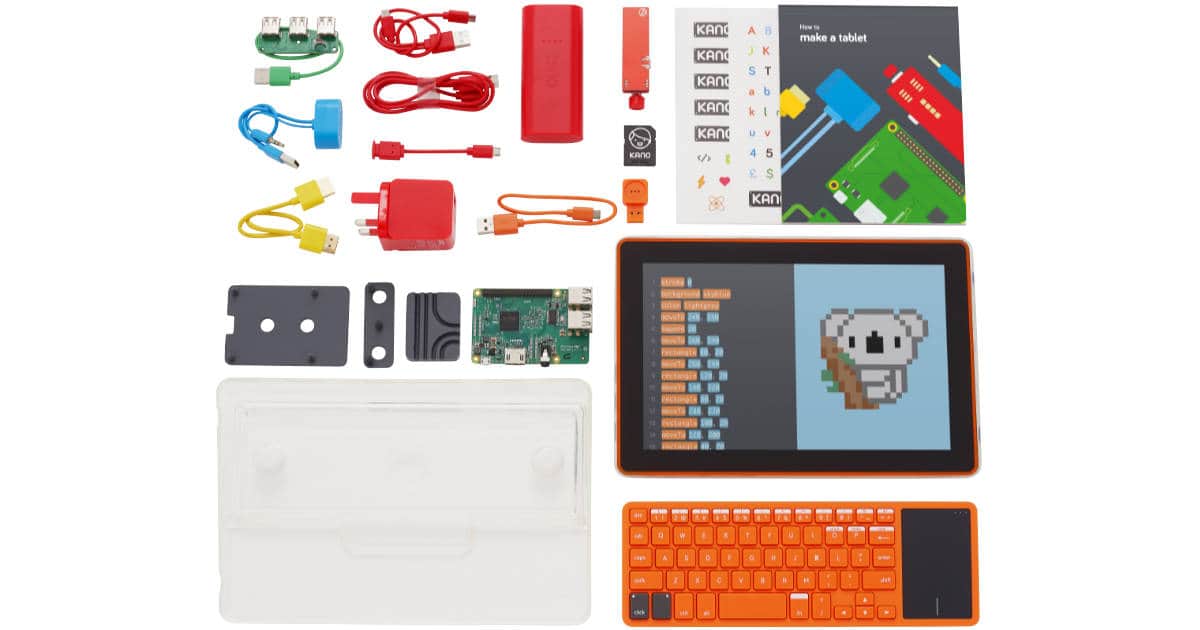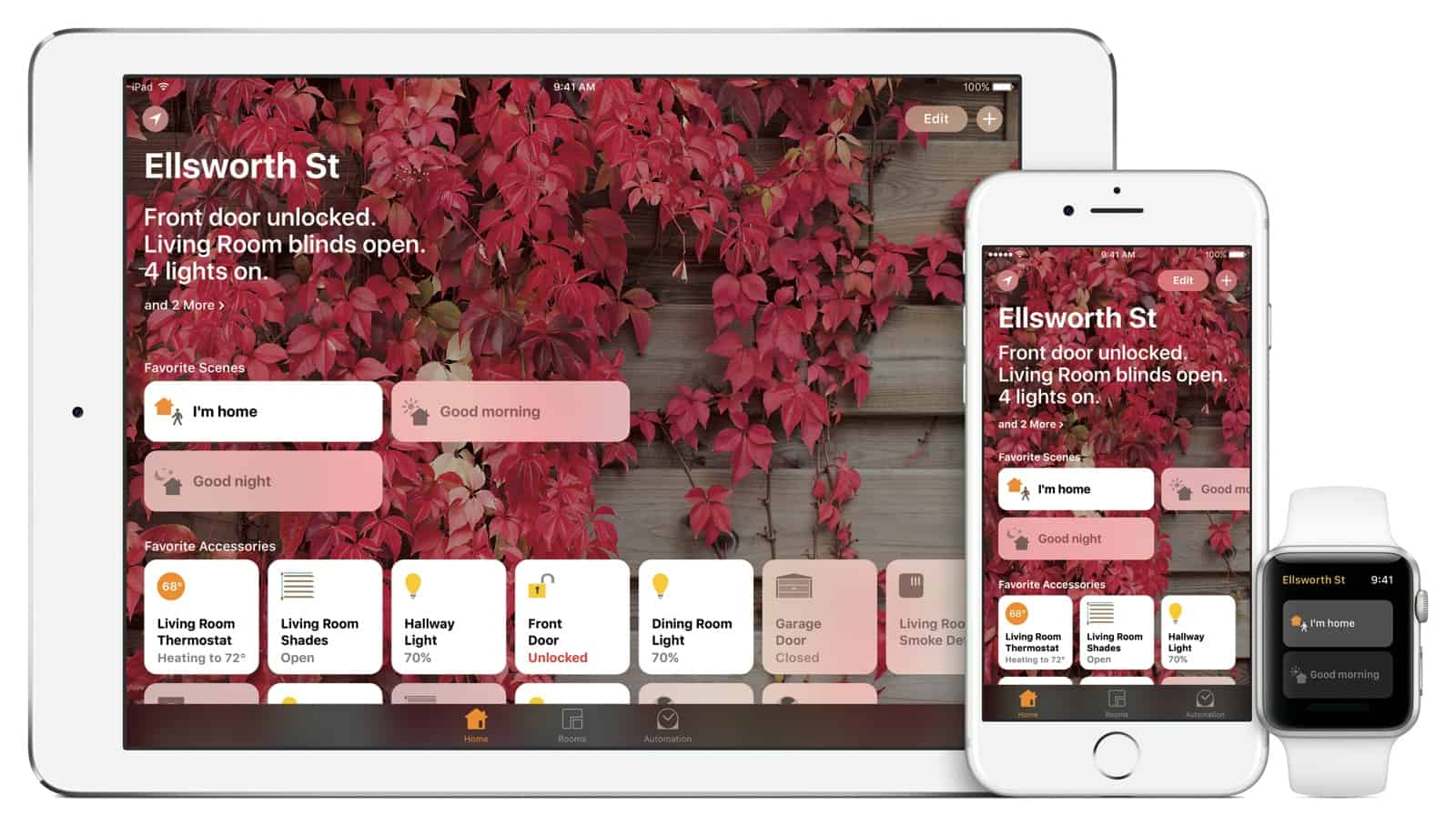Forget about a magic mirror that tells you what you want to hear. This DIY Raspberry Pi magic mirror can update you on the news and weather while you prepare for your day. All3DP‘s Jackson O’Connell has just published an excellent walkthrough on building your own smart, or magic, mirror using Raspberry Pi, common building materials, and a code repository that’s just waiting for you to make the most of it. It’s hands-down one of the coolest and most useful Raspberry Pi DIY projects I’ve come across.
Raspberry Pi
The DIY Raspberry Pi Automatic Guitar Tuner
First of all, “music is notably mathematical” is a brilliant pun. Second of all, this project is a brilliant merger of Maker DIY tech and music, especially since the gadget actually turns the pegs for you to tune your guitar strings. This Raspberry Pi project is based on Band Industries’ Roadie 3 automatic tuner. I love the fact that Jean-Gilles not only provides the instructions and source code for the project, but also the 3D printing files.
Music is notably mathematical, so it should come as no surprise that many makers turn to creating their own Raspberry Pi-based solutions for musical problems. Today we’ve got a sharp, problem-solving creation to share from maker Guyrandy Jean-Gilles. Tired of twisting his pegs, Jean-Gilles opted to develop his own Raspberry Pi Pico-powered automatic guitar tuner.
Stop Porch Pirates With Raspberry Pi and … Flour?
Nobody enjoys having porch pirates steal their Amazon deliveries, but what do you do about it? One creator blasts them with water and flour.
This Person Hacked His iPod to Stream Spotify Using Raspberry Pi
Guy Dupont recently hacked an old iPod to stream Spotify. He used a Raspberry PI Zero W and a custom UI built using Python. Additionally, he fitted a 1000 mAh batter into it, a motor for haptic feedback, and a 2-inch LCD Adafruit display. “My mother-in-law recently gifted me a bag of the family’s retired iPods. I had forgotten how good it feels to hold and use one of these things. Naturally, I decided to modify one. I wanted to supply some modern features (streaming, search, Bluetooth audio, etc), while paying homage to the amazing UX that Apple originally released almost 20 years ago.”
Program Your Own Robot or Drone With a pi-top Kit
I’ve been a fan of Raspberry Pi for years. This tiny computer can do so much with such a tiny footprint. It can be your desktop computer, a classic arcade game, or whatever you dream up. The board even features a general purpose input/ouput (GPIO) header. This allows you to incorporate electronics components, like sensors, LED lighting, motors and servos. Hobbyists have used the Raspberry Pi in robotics applications almost from day one. This latest product, though, takes the hobby to another level. It’s the pi-top [4] robotics kit, and it allows makers to develop just about anything they can imagine. It’s programmable in Python, .NET, and more. You can program your robot or drone to avoid obstacles, recognize lines and objects, respond to gestures, racognize faces, and more. The pi-top [4] Complete Kit includes everything you need to get started. You’ll get the Raspberry Pi 4 Model B, the pi-top case, and enough electronic components to really get your feet wet. For construction of your robot or drone, the pi-top and included metal plate work with LEGO and Meccano, as well as things you make from raw materials or repurposed objects.
Christmas 2020: Raspberry Pi Christmas Shopping Guide
The company behind Raspberry Pi has put together its Christmas shopping guide for 2020. It’s of course Pi-focused but the compact computer may already be a good gift for the techie in your life.
We’ve got ideas for the gamers in your life, what to get for the Raspberry Pi “superfan” who has everything, and options that allow you to keep giving all year round.
Raspberry Pi 400 is a $70 Computer in a Keyboard
The new Raspberry Pi 400 is a US$70 computer built into a compact keyboard inspired by the home computers of the 1980s.
Raspberry Pi 4 8GB Option Launches for $75
The Raspberry Pi 4 was released last year in 2GB and 4GB models. Today an 8GB model is being released for US$75.
The BCM2711 chip that we use on Raspberry Pi 4 can address up to 16GB of LPDDR4 SDRAM, so the real barrier to our offering a larger-memory variant was the lack of an 8GB LPDDR4 package. These didn’t exist (at least in a form that we could address) in 2019, but happily our partners at Micron stepped up earlier this year with a suitable part.
Get a Raspberry Pi Camera With This New $50 Product
The Raspberry Pi Foundation announced a camera board built around a 12MP Sony IMX477 sensor, and it supports interchangeable lenses.
The High Quality Camera is compatible with almost all Raspberry Pi models, from the original Raspberry Pi 1 Model B onward. Some very early Raspberry Pi Zero boards from the start of 2016 lack a camera connector, and other Zero users will need the same adapter FPC that is used with Camera Module v2.
Raspberry Pi 4 Available Starting at $35
Brand new device Raspberry Pi 4 is now available for US$35, offering USB-C for power, two micro HDMI ports, gigabit ethernet, and more.
At first glance, the Raspberry Pi 4 board looks very similar to our previous $35 products, all the way back to 2014’s Raspberry Pi 1B+. James worked hard to keep it this way, but for the first time he has made a small number of essential tweaks to the form factor to accommodate new features.
Build Your Own Touch Screen Computer with Kano's Computer Kit Touch
Kano just released a new version of its Raspberry Pi-based portable computer kit with a touch screen. It’s a kit that has everything to build your own portable computer with a touch screen display with easy to understand instructions that also teach you about how computers work. It takes less than minutes to build the kit and the included micro SD card has the operating system and several educational apps pre-installed. You can learn about coding, using the command line, and more. It’s a great way to learn more about computers and coding. You can get the Kano Computer Kit Touch at the Kano website for US$279.99.
iOS 12 Public Beta, Jeff's Raspberry Pi Cloud Server Plan - TMO Daily Observations 2018-06-26
Andrew Orr and Dave Hamilton join Jeff Gamet to discuss why you may—or may not—want to install iOS 12 public beta, plus the dive into Jeff’s plan to make his own cloud file server with a Raspberry Pi.
CES - Kano is the Most Fun You'll Have building and Coding Your Own Computer
LAS VEGAS – Kano makes computers and coding accessable to all ages with their built-it-yourself computer kits and easy to learn coding platform. They show Jeff Gamet their product lineup at CES 2018.
High Sierra in the Wild, Apple Watch Apps, Tech-palooza - ACM 430
Jeff Butts joins Jeff while Bryan is out of town to share macOS High Sierra experiences so far, talk about the state of Apple Watch apps, plus nerd out on Arduino and Raspberry Pi.
Apple Shakes Up Smarthome Market by Opening HomeKit
Apple has quietly made a change that could unlock the doors to HomeKit and help it become the standard for controlling HomeKit devices you built.
Raspberry Pi Brings PIXEL Desktop Environment to the Mac
The team behind the super affordable Raspberry Pi computer platform has been working on their own desktop environment called PIXEL, and now it’s available for the Mac. PIXEL is built on Debian, so it’s a fully bootable system, and includes everything you need to be productive, the Chromium web browser, and more. They designed it so you can pop it on a USB flash drive or DVD and run it from there. PIXEL is still in an experimental stage, so don’t rely on it as your primary OS. It’s a free download at the Raspberry Pi website.
